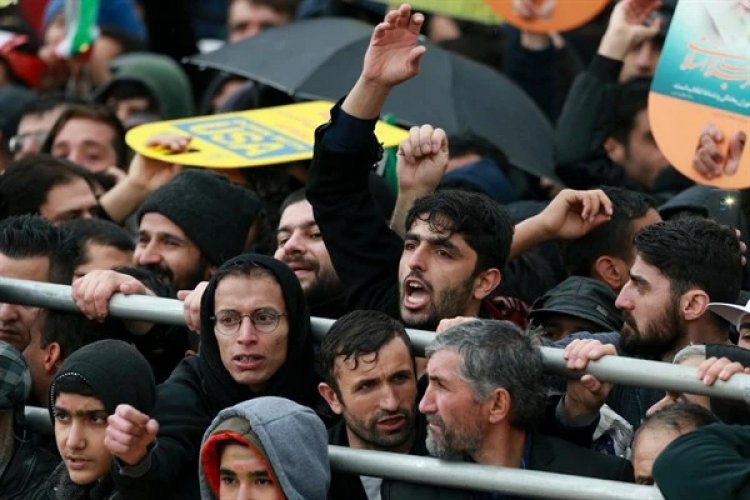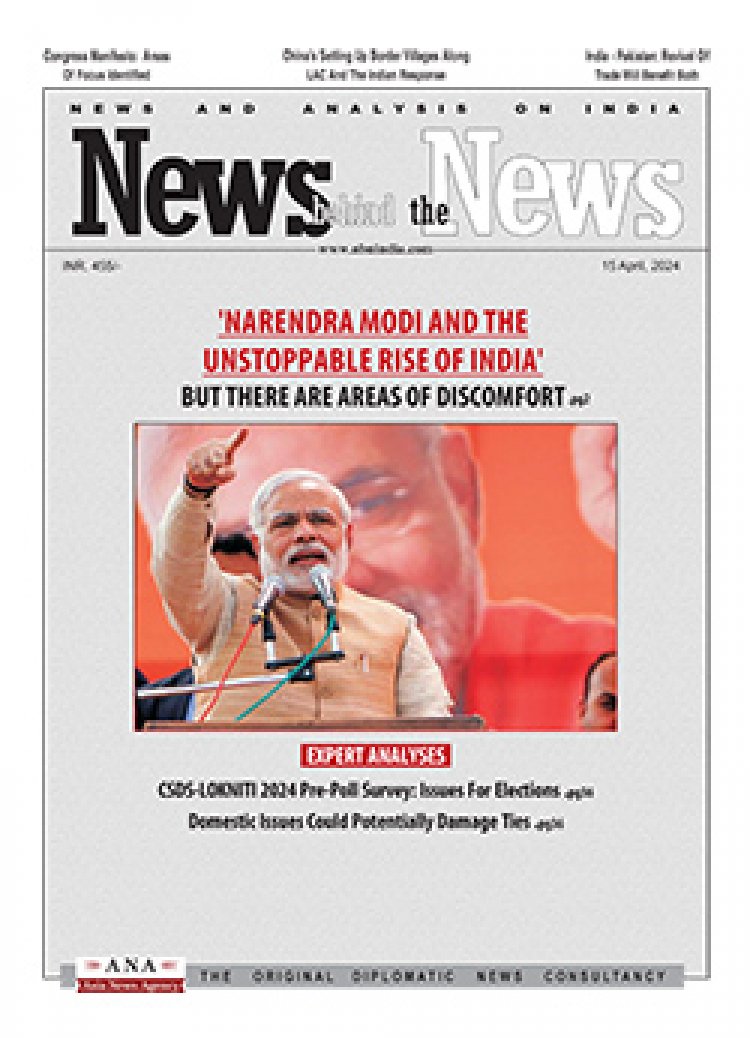Radical Islam under Challenge in Iran and Saudi Arabia: India Should take Advantage
STORIES, ANALYSES, EXPERT VIEWS

India’s focus on the appointment of a new army chief in Pakistan, writes C Raja Mohan (Senior Fellow at the Asia Society Policy Institute, Delhi and a contributing editor on international affairs for The Indian Express) “is unfortunately not matched by an interest in far more consequential developments unfolding further west. The anti-regime protests in Iran and the social and economic transformation of Saudi Arabia under Mohammed bin Salman point to the potential restructuring of our western periphery. Of course, the persistent conflict with our western neighbour dominates our mind-space. It also obfuscates the fact that Pakistan has never really been the anchor of the Subcontinent’s western marches. Pakistan has often served as a useful instrument for outsiders, and Afghanistan has long been the theatre of contestation. But they do not have the agency to reshape our western frontiers. Iran and Saudi Arabia do."
Mohan doubts that General Asim Munir, the new army chief “can produce or facilitate the structural changes needed to end Pakistan’s political dysfunction, rejuvenate its economy, and arrest Islamabad’s relative decline.” And “if Pakistan is in a bad shape, Afghanistan is in worse condition….”
Change possible in Iran, Saudi Arabia
But change is in the air in Iran and Saudi Arabia. “Even if the clerics succeed in putting an end to the current wave of protests, it is doubtful if they can handle the multiple crises — social, economic, political and foreign policy — confronting Iran today….” In Saudi Arabia, “the impetus for change is coming from the top — the crown prince and prime minister Mohammed bin Salman….”
These developments in the Gulf offer hope. “It is by no means guaranteed that either MbS or the Iranian protests will succeed….” But Mohan concludes "there is no question that our western neighbourhood has begun to evolve a little faster — if unevenly and in a non-linear fashion. Delhi must make the best of these opportunities…”
Expectations from Pakistan’s new army chief
Be that as it may, the reality is that there is interest in Gen. Asim Munir, taking over as Pakistan’s Army chief.
He was finally selected without much controversy but, writes Syed Ata Hasnain (retired lieutenant-general, is a former commander of the Srinagar-based 15 Corps; also associated with the Vivekananda International Foundation and the Institute of Peace and Conflict Studies) “a lot is being read into the context of the change due to the flurry of instability in Pakistan and the crossroads of existence that the nation finds itself in.
Two issues concerning Gen Munir: “The glaring part of Gen. Munir’s record are two issues — one personal and the other official. He is a ‘Hafiz-e-Quran', someone who at the age of 38 succeeded in memorising the Quran……” But “there is nothing to indicate that he will be more ideology oriented and will attempt to take Pakistan and its Army back to the times of Gen. Zia-ul Haq….
“The other issue of misplaced concern is that Gen. Munir is one rare officer who held appointments as the director-general of both Inter-Services Intelligence and Military Intelligence. The former appointment was short-lived, for eight months only. His opening of an investigation against Imran Khan’s wife’s involvement in some corrupt practices brought him to grief and Gen. Bajwa was forced to remove him under pressure…..However, that should not project any differences between Gen. Bajwa and Gen. Munir. Both belong to the elite 10 Corps club. Gen. Munir commanded Force Command Northern Areas (FCNA), which includes the Siachen sector, while serving under Gen. Bajwa.”
Gen Munir’s dilemma: confrontation with India: The more important issue for India, is whether Gen Munir will follow the ‘Bajwa Doctrine’. Bajwa tried to discourage continued confrontation with India”. According to Hasnain, there was however, “little credibility for his words or his strategy. Gen. Munir probably finds himself under even greater stress. Will the economic turbulence ravaging Pakistan force him to adopt a more defensive approach. There is no doubt that his attitude towards all donor countries will need to be conducive, but can follow that with a stance of aggression against India. I perceive that Gen. Munir may attempt to break out of the shadow of his current mentor, Gen. Bajwa, by doing something unexpected.”
Another dilemma: non interference in domestic politics: Hasnain believes the new army chief “will attempt to break out and establish his own coterie of loyalists who may not be in line with Gen. Bajwa’s thinking. The latter has promised no interference in the nation’s politics, but this is going to be something extremely difficult after six years of staying at the helm of affairs. Besides that, the United States is probably banking on him to manage the political environment and prevent it sinking so low as to make the nation unmanageable and ungovernable. This could be dangerous as Gen. Asim Munir’s ambitions are still unknown but sitting back on his haunches and allowing a proxy appointed by the US to run the show could just irk him and bring out the inherent ambitions of being his own man. That is when the problems could start once again, both for the Pakistan Army and for the political community of Pakistan.”
















